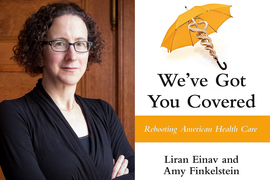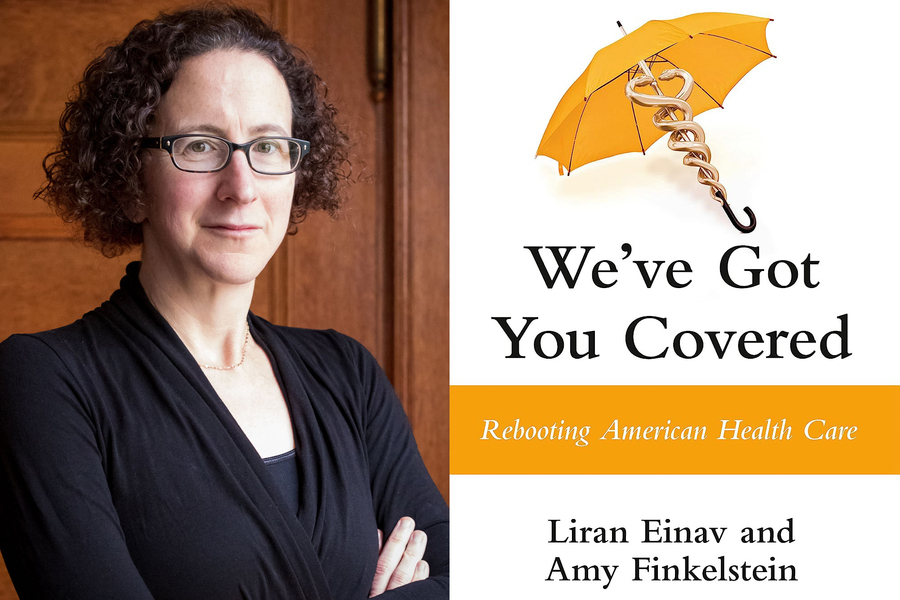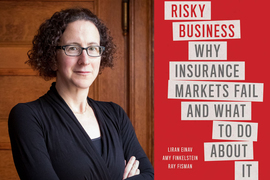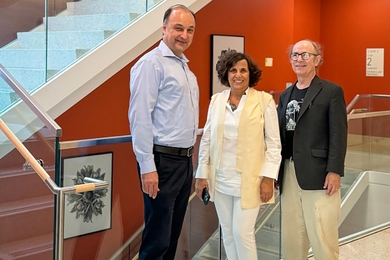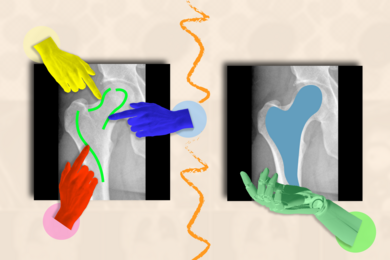It’s not exactly what he’s best known for, but Alexander Hamilton helped develop the first national, compulsory health insurance policy in the world: a 1798 taxpayer-financed plan Congress approved to cover sick and disabled seamen.
“The interests of humanity are concerned in it,” Hamilton wrote.
And they still are, as MIT Professor Amy Finkelstein notes in a new book. The U.S. has repeatedly tried to provide medical care for those who need it and cannot afford it. These efforts may have started with Hamilton, but they have continued through modern times, with policies that have mandated emergency-room care for all, and have extended insurance to those with certain serious illnesses.
Then again, no policy has fully addressed the needs of the U.S. population. About 30 million U.S. citizens lack health insurance. Even for the insured, costs routinely exceed a plan’s benefits. Americans have $140 billion in unpaid medical debt, more than all other personal debt combined, and three-fifths of it is incurred by people with health insurance.
That’s why Finkelstein is calling for a total overhaul of the U.S. health insurance system, in a new book with economist Liran Einav of Stanford University, “We’ve Got You Covered: Rebooting American Health Care,” published today by Portfolio. In it, the scholars envision an approach with one layer of free and automatic health insurance for everyone, and another layer of private insurance for those seeking additional care amenities.
“In the U.S., we have always had a commitment to do something when people are ill, so we might as well do it effectively and efficiently,” says Finkelstein, the John and Jennie S. MacDonald Professor in MIT’s Department of Economics. “I don’t think anyone would argue we have a wonderful, well-functioning health care system.”
Patchwork programs
Finkelstein has won the John Bates Clark Medal and received a MacArthur fellowship for empirical studies of health insurance and health care — including work on Medicaid and Medicare, the financial impact of being hospitalized, geographic variation in medical costs, and more. Finkelstein and Einav are also co-authors, with Ray Fisman, of the 2023 book, “Risky Business,” about the insurance industry.
Through two decades of intensive research, Finkelstein and Einav have also never advocated for specific health care policies — until now.
“We feel we do have something to say to the wider public about the problems, and also about the solution,” Finkelstein says. “We emphasize the problems of the insured, not only the uninsured.”
Indeed, around 150 million Americans rely on private employer-provided insurance. Yet they risk losing that insurance if they lose or change their job. Those with public health insurance, like Medicaid, face nearly the opposite problem. If a family member earns enough money to lift a household above the poverty line, they can lose eligibility. The net result: About one in four Americans under the age of 65 will be uninsured at some point in the next two years.
Many of them will actually be eligible for free or heavily discounted coverage. About 18 million Americans who are eligible for public health insurance remain unenrolled due to a lack of information and complicated signup procedures. And even Medicare, the workhorse public insurance program for many seniors, has out-of-pocket expenses with no cap. A quarter of people on Medicare spend a quarter of their income on health care.
Some reforms have brought better coverage to more people. As the scholars note, the Affordable Care Act of 2010 (which MIT economist Jonathan Gruber helped develop) has allowed 10 million formerly uninsured Americans to gain coverage. But it didn’t change the risk of losing insurance coverage or of incurring large medical debt due to highly incomplete coverage.
The book contends the U.S. has used a long series of piecemeal policies to try to fix problems with health coverage in the U.S. One long-standing approach has been to create disease-specific care subsidies, starting with a 1972 law extending Medicare to everyone with end-stage kidney disease. More recently, similar programs have been passed to cover patients with tuberculosis, breast and cervical cancer, sickle cell anemia, ALS, HIV/AIDS, and Covid-19.
Finkelstein and Einav are skeptical of this approach, however, due to its patchwork nature. Passing separate laws for different illnesses will always leave holes in coverage. Why not just automatically include everyone?
“When you think about covering all the gaps, that’s what universal basic coverage is,” Finkelstein says.
Land of the free
As “We’ve Got You Covered” notes, the current U.S. approach to health insurance is hardly etched in concrete: Employer-provided health care really only dates to the 1950s. And, the authors emphasize, the way the U.S. keeps instituting policies to make basic care available to anyone — open emergency rooms, subsidies for severe disease treatments — is telling us that the country has a bottom-line expectation of providing humane care when most needed.
“The reason why we have all these patches is that, hard as it is to believe, in the United States there is in fact a strong social norm, an unwritten social contract, that we don’t let people die in the streets,” Finkelstein says. “When people are in dire medical situations and don’t have resources, we inevitably as a society feel compelled to try to help them. The problems of the insured and the uninsured represent failures to achieve our commitments, not the lack of those commitments.”
To Finkelstein and Einav, then, the solution is to provide free, basic health care for everyone. No sign-up woes; enrollment would be automatic. No charges for basic care. No losing insurance if you leave your job. No falling off the public-insurance ranks if you climb above the poverty line.
At the same time, they envision, the U.S. would have another layer of private health insurance, covering health care amenities — private hospital rooms, say, or other elective elements of medical care. “You can pay to upgrade,” Finkelstein says.
That would not lead to the system of absolutely equal, universal care that some envision, but Finkelstein still believes it would improve the status quo.
“We have inequality in all aspects of our lives, and this is another,” Finkelstein says. “The key is to provide essential basic coverage.”
Could the U.S. afford a system of free, basic, automatic-enrollment health care? The book’s surprising answer is: Yes, absolutely. In the U.S., 18 percent of GDP is spent on health care. Half of that goes to public health care, and half on private care. As it happens, 9 percent of GDP is how much European countries spend on their public-care health systems.
“We’re already paying for universal coverage in the United States, even though we’re not getting it,” Finkelstein says. “We’re already spending 9 percent of GDP on publicly financed health care. We certainly could do it at the same price tag as all these other countries.”
“We’ve Got You Covered” even comes out against modest co-pays (despite studies showing they reduce visits to doctors), finding them “in conflict with the rationale for universal coverage, namely, access to essential medical care without regard to [financial] need,” as Finkelstein says.
Until the impossible becomes inevitable
If the Finkelstein-Einav health insurance system makes sense on the merits, though, does it have any chance of existing?
“One thing that makes me, if not optimistic, then at least not unduly pessimistic, is that this is an argument that will and does appeal to people across the political spectrum,” Finkelstein contends. Expanding health insurance is usually associated with progressive politicians, but the book points to a series of conservatives who, even into the 21st century, have supported universal coverage.
Certainly other experts have praised “We’ve Got You Covered.” Siddhartha Mukherjee, a physician and award-winning author, calls the book “the clearest diagnosis of the American health care system I have seen,” adding it “should and will reset the debate about how to fix health care.”
N. Gregory Mankiw PhD ’84 , the Robert M. Beren Professor of Economics at Harvard University and chair of the President’s Council of Economic Advisers under former president George W. Bush, terms it a “smart, cogent, and eminently readable look at the U.S. health care system and what can be done to fix it.”
Even if a change to a free system of basic care is not immediately in the offing, Finkelstein and Einav suggest in the book that their role, in writing “We’ve Got You Covered,” is something economist Milton Friedman suggested: Develop ideas and keep them in the public sphere until “the politically impossible becomes the politically inevitable.”
And in the meantime, Finkelstein and Einav firmly suggest people take more seriously the way U.S. health care policy implicitly assumes we should help everyone. And for the same reasons Hamilton wanted to help seamen, namely, “to protect from want and misery” in their lives.
